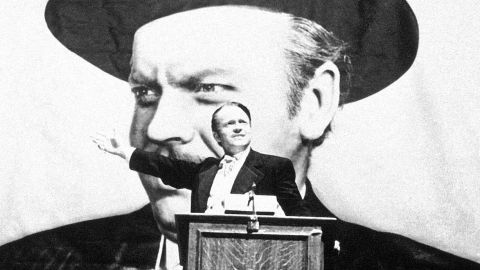The Dark Side of High Achievement

What’s the Big Idea?
It is a familiar tale, one told many times by writers and filmmakers from Shakespeare to Orson Welles. A dynamic thinker sets out on his or her career and makes an impact almost immediately. He brings new ideas to the table, sees angles that others do not, and consequently shoots up the ranks to become a leader. After experiencing initial success in their new role, however, something happens to this person. The world begins to change, but he seems blind to the transformations taking place. The one-time innovator becomes calcified and defensive, refuses to accept criticism, and shuts himself off in isolation. Pretty soon his empire starts to crumble, and everything he has accomplished comes crashing down.
In the movies and on stage, the leader usually fails because “absolute power corrupts absolutely,” a la Charles Foster Kane. Or, as in the case of Macbeth, the leader is tortured by thoughts of a sin for which he can never atone. In real life, however, many managers face similar problems even when they have committed no major sins and when their power is far from absolute. Indeed, becoming isolated and self-obsessed is something every business leader should fear, not just corporate titans but also middle managers and owners of small companies. To the detriment of their firms, their employees, and most of all themselves, many managers cling to the techniques that got them to the top long after those techniques have become obsolete.
One reason for this has to do with the personal attributes that lead to success within an organization, says Thomas DeLong, Professor of Management Practice at Harvard Business School. Characteristics such as a high need for achievement and a focus on task accomplishment, which are invaluable in precocious new employees, can lead to counterproductive habits once a person has attained a managerial position. High achievers, while intelligent and hard working, are often terrible at taking criticism and examining their own weaknesses. Driven by their need for tangible accomplishments, these people end up managing their professional images at the expense of their core skills and their personal relationships.
Watch Thomas DeLong here:
What’s the Significance?
The engineer and architect Buckminster Fuller had a motto that he often repeated in his talks and essays: “Dare to be naïve.” While this is sage advice for everyone, it is doubly true for leaders who have many people depending on them. DeLong says that it is critical that managers do not let performance anxiety get in the way of self-improvement. “Many high performers would rather do the wrong thing perfectly than the right thing poorly,” he writes.
Sometimes, long-term success requires short-term failure. High achievers, for whom any failure is terrifying, often have trouble accepting this fact. Instead, they stay focused on their core skills and begin to neglect the greater needs of the company. Sooner rather than later, however, their colleagues start to notice that they are failing to do their job and, eventually, their unwillingness to step out of their comfort zone could jeopardize their company and their career.
According to DeLong, the first step to breaking this cycle is simply to reflect on what is making you anxious. Then, after admitting your weaknesses to yourself, you must then admit them to others. Finally, you must shift your focus away from short-term success in order to undergo the long and sometimes grueling process of learning new skills.
The key to this transformation, DeLong says, is realizing that you are not alone. “Individuals do not change alone,” he says. “To get over [your] fears there needs to be someone there that at some point will take you by the hand and when you get ready to pull back and go back to old behaviors will help you through that key time where you may go back and revert to old behaviors.”
And above all, be brave. “Don’t blink,” says DeLong. “Even though you question
yourself, keep moving forward.”





